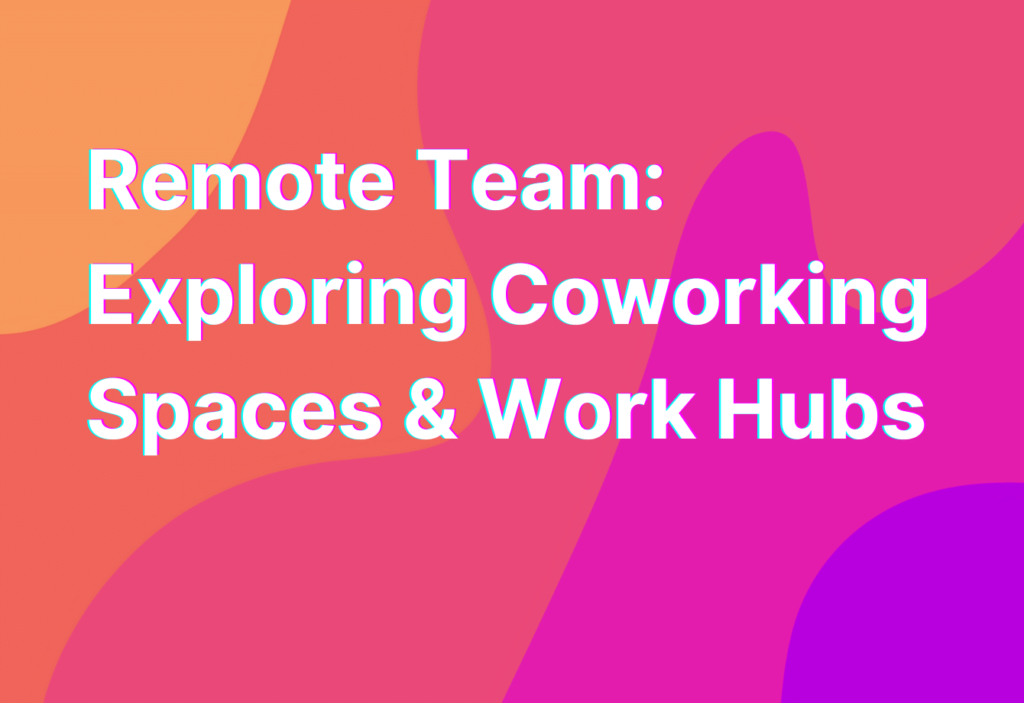Remote Team: Exploring Coworking Spaces & Work Hubs
Hey there, remote workers! Ashley here, your friendly remote work advocate with another informative blog post. Today, we’re going to dive into the world of coworking spaces and work hubs. As a remote team, finding the right environment to work in is crucial for productivity and collaboration. So, let’s explore the benefits and considerations of coworking spaces and work hubs for remote teams like ours.
The Rise of Coworking Spaces
Coworking spaces have become increasingly popular in recent years, and for good reason. These shared workspaces offer a variety of benefits for remote teams. First and foremost, they provide a dedicated space for work, away from the distractions of home. Plus, they offer the opportunity to network and collaborate with other professionals in different industries.
One of the key advantages of coworking spaces is the sense of community they foster. Working remotely can sometimes feel isolating, but in a coworking space, you’re surrounded by like-minded individuals who understand the challenges and joys of remote work. It’s a great way to build social capital and expand your professional network.
Speaking of social capital, I recently came across a fascinating article on Remote Teamer that delves deeper into the concept and how coworking spaces can help unlock it. Definitely worth a read!
Considerations for Remote Teams
While coworking spaces offer numerous benefits, there are a few things remote teams should consider before diving in. First, location is key. You’ll want to choose a coworking space that is convenient for all team members, whether they’re based in the same city or spread across the globe. Accessibility and proximity to amenities are also important factors to consider.
Another consideration is the cost. Coworking spaces typically require a membership fee, which can vary depending on the location and amenities offered. It’s important to weigh the cost against the benefits and determine if it aligns with your team’s budget.
Additionally, the atmosphere and culture of a coworking space should align with your team’s values and work style. Some spaces may be more focused on collaboration and networking, while others may prioritize quiet and individual work. It’s important to visit potential spaces and get a feel for the environment before committing.
Top Coworking Spaces & Work Hubs
Now that we’ve covered the basics, let’s take a look at some of the top coworking spaces and work hubs around the world. Keep in mind that this is by no means an exhaustive list, but it should give you a good starting point for your research:
- WeWork: With locations in over 100 cities worldwide, WeWork is one of the most well-known coworking space providers. They offer a range of membership options and amenities to suit different needs.
- Regus: Another global player in the coworking space industry, Regus has a vast network of locations and flexible membership options.
- Impact Hub: Impact Hub focuses on creating spaces that foster social impact and sustainability. They have locations in cities around the world and offer a vibrant community of changemakers.
- The Wing: Designed specifically for women, The Wing offers coworking spaces that prioritize inclusivity and empowerment. They have locations in several major cities in the United States.
- Trello: While Trello is primarily known for its project management software, they also have a coworking space in New York City. It’s a great option for remote teams who are fans of the platform.
Remember, this is just a small sample of the many coworking spaces and work hubs out there. Be sure to do your research and find the one that best suits your team’s needs and preferences.
Wrapping Up
Well, that wraps up our exploration of coworking spaces and work hubs for remote teams. Whether you’re looking for a change of scenery, a sense of community, or simply a dedicated workspace, coworking spaces can be a great option for remote teams like ours.
Just remember to consider factors like location, cost, and atmosphere before making a decision. And don’t forget to check out that article on Remote Teamer for more insights on unlocking social capital in coworking spaces.
Until next time, happy coworking!


